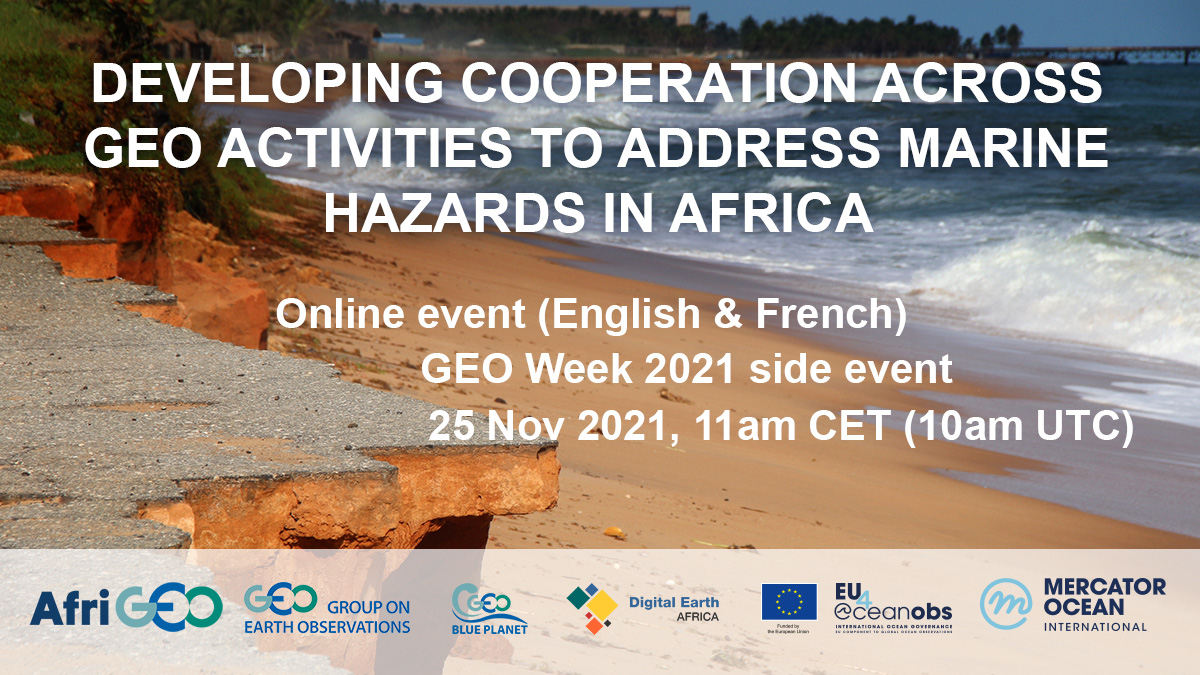The annual flagship event of the Group on Earth Observations (#GEOWeek2021) took place virtually from 22 to 26 November 2021. In the context of the packed global policy agenda on climate and environment issues, with the latest IPCC reports release, COP26, and launch of the UN Decade of Ocean Science for Sustainable Development and Ecosystem Restoration, GEO Week 2021 is one of the most important editions. The event served to present activities of the GEO work programme working to support international efforts as well as highlight why integration across thematic areas is essential.
Earth observations (EO) data provide essential information to policy and decision makers, enabling them to understand the issues they are dealing with and make appropriate and informed decisions. An intergovernmental partnership of more than 100 countries plus the European Commission, GEO promotes extensive use of EO data, information, and knowledge for research, policy, decisions, and action.
GEO’s Blue Planet Initiative, which serves as its ocean and coastal arm, hosted a side event during the week on developing cooperation across GEO activities to address marine hazards in Africa. The side event discussed the role of Earth Observations in monitoring, preparing for, and recovering from marine hazards. It also looked at how GEO can support the coastal aspects of the Sendai Framework for disaster risk reduction in Africa. By bringing representatives from the GEO community, the event also served to inform priorities and identifying opportunities for future collaboration across GEO activities and regional GEOs around this thematic. Speakers included experts giving local perspectives from Senegal, and the Seychelles. Representatives from AfriGEO, GEO Digital Earth Africa, GEO Human Planet, GEO Blue Planet and GEO’s Disaster Risk Reduction Working Group presented actions to address coastal hazards on the African continent. The event was hosted in the framework of the EU4OceanObs Action, which facilitates the EU coordination of GEO Blue Planet.
Given that approximately 25% of Africa’s population live within 100 km of the coast, marine hazards pose increasing threats at local and regional levels. These include eutrophication, coastal flooding, coastal erosion, marine pollution, and water-borne diseases – all of which can be exacerbated by climate change.

- For more information on the side event on marine hazards in Africa, click here.
- Read the European Commission’s member statement at GEO week 2021, highlighting EU4OceanObs role in facilitating the EU coordination of GEO Blue Planet
- To access GEO Week 2021 event page, click here.
- For a summary of GEO Week 2021, click here.
Other ocean topics during the week
Climate and Ocean anchor session
On the ocean theme, the third anchor session was dedicated to ocean and climate with Peter Thompson, the UN Secretary General’s Special Envoy for Oceans, and representatives from the Intergovernmental Oceanographic Commission of UNESCO. This session investigated what/how the activities of GEO’s Work Programme are best positioned to provide input to support country efforts to develop ocean/marine-conscious climate action, with particular focus on the UN Climate Change National Adaptation Plans. The GEO Blue Planet presentation given by its member Laura David, focused on National Adaptation Plans in the face of growing marine and coastal hazards due to climate change. The presentation highlighted the critical role of data products such as sea level trends from the EU’s Copernicus Marine service, as valuable resources.
Climate Crisis and need for Global Climate Observations
This important session reviewed the global climate observing system, the progress accomplished in the last 5-10 years as well as the challenges ahead following the publication of the Global Climate Observing System (GCOS) Status Report 2021 and new science directions of World Climate Research Programme (WCRP). Discussions also focused on the importance of the ocean observing community (represented by the Global Ocean Observing System), including GOOS-UN Ocean Decade Programmes).




